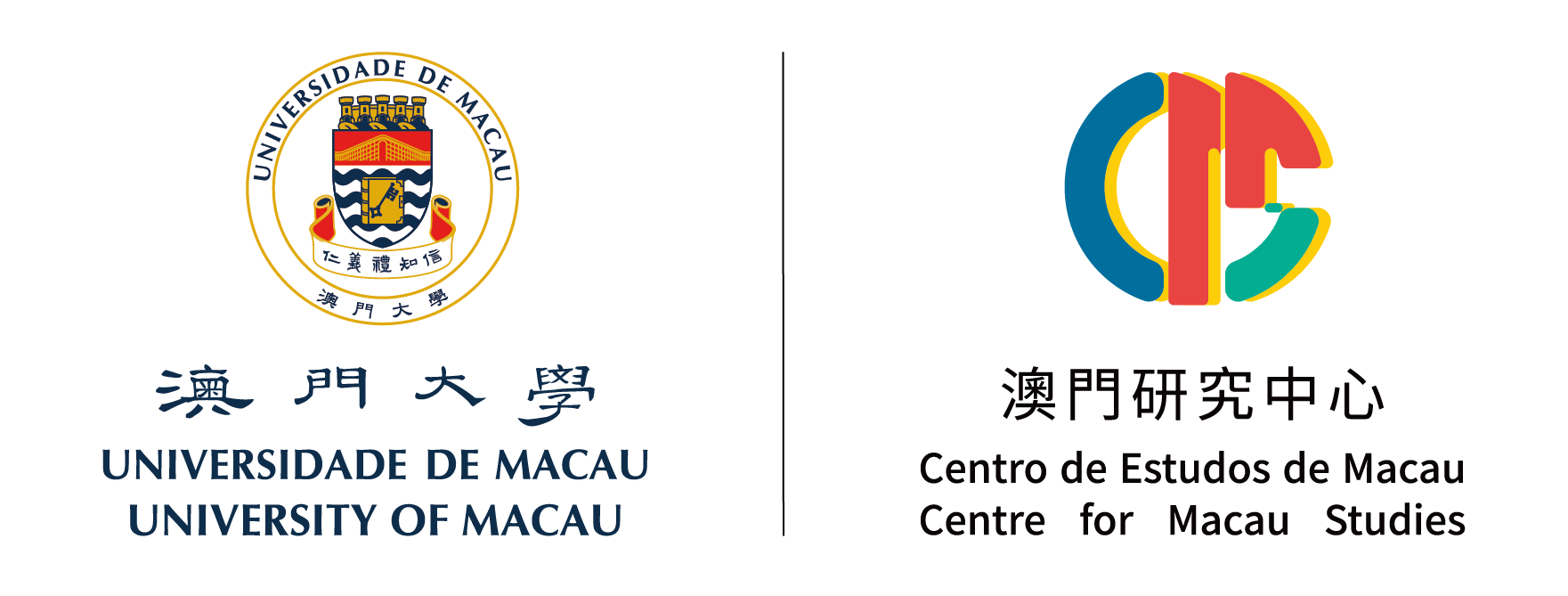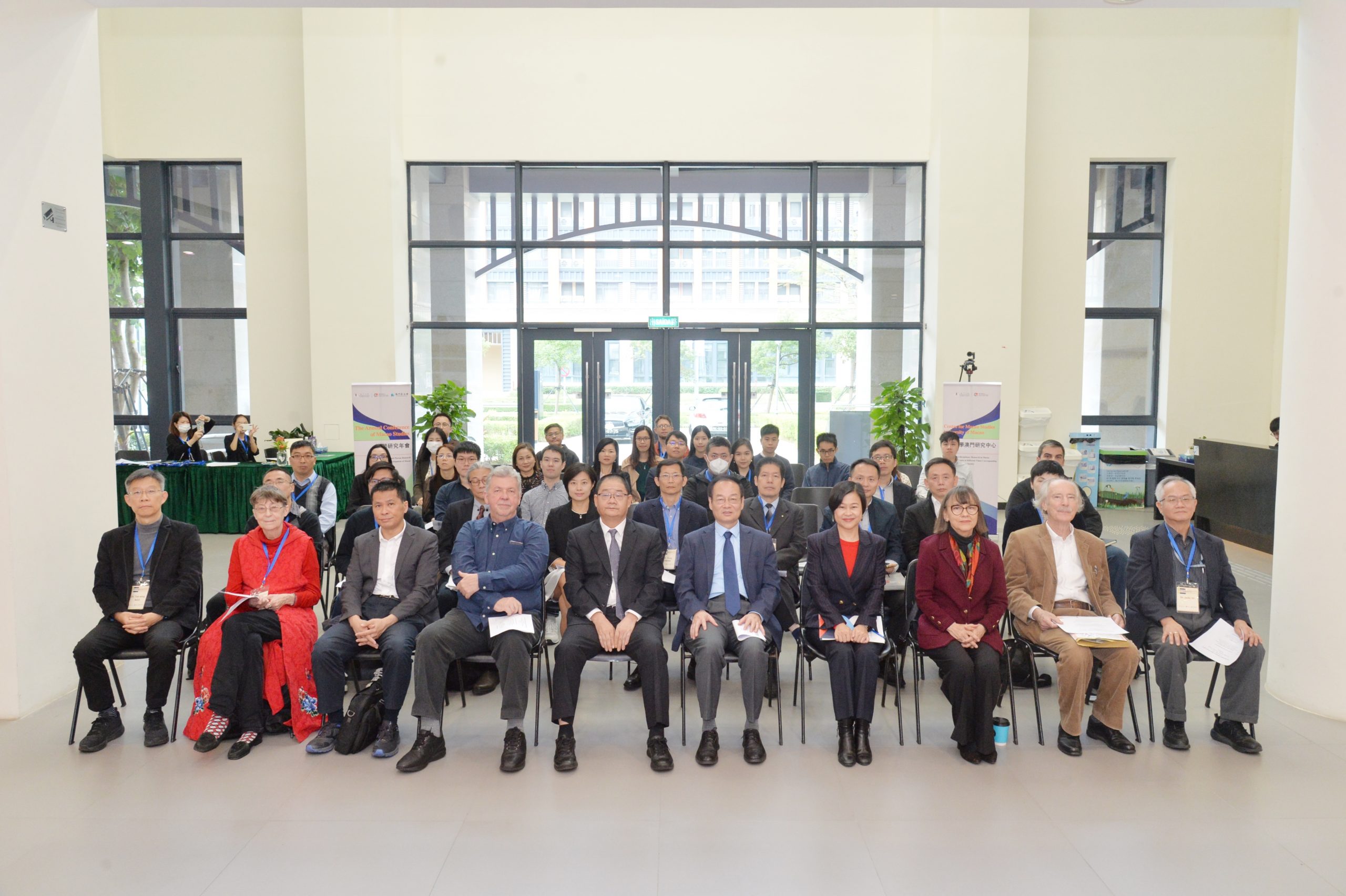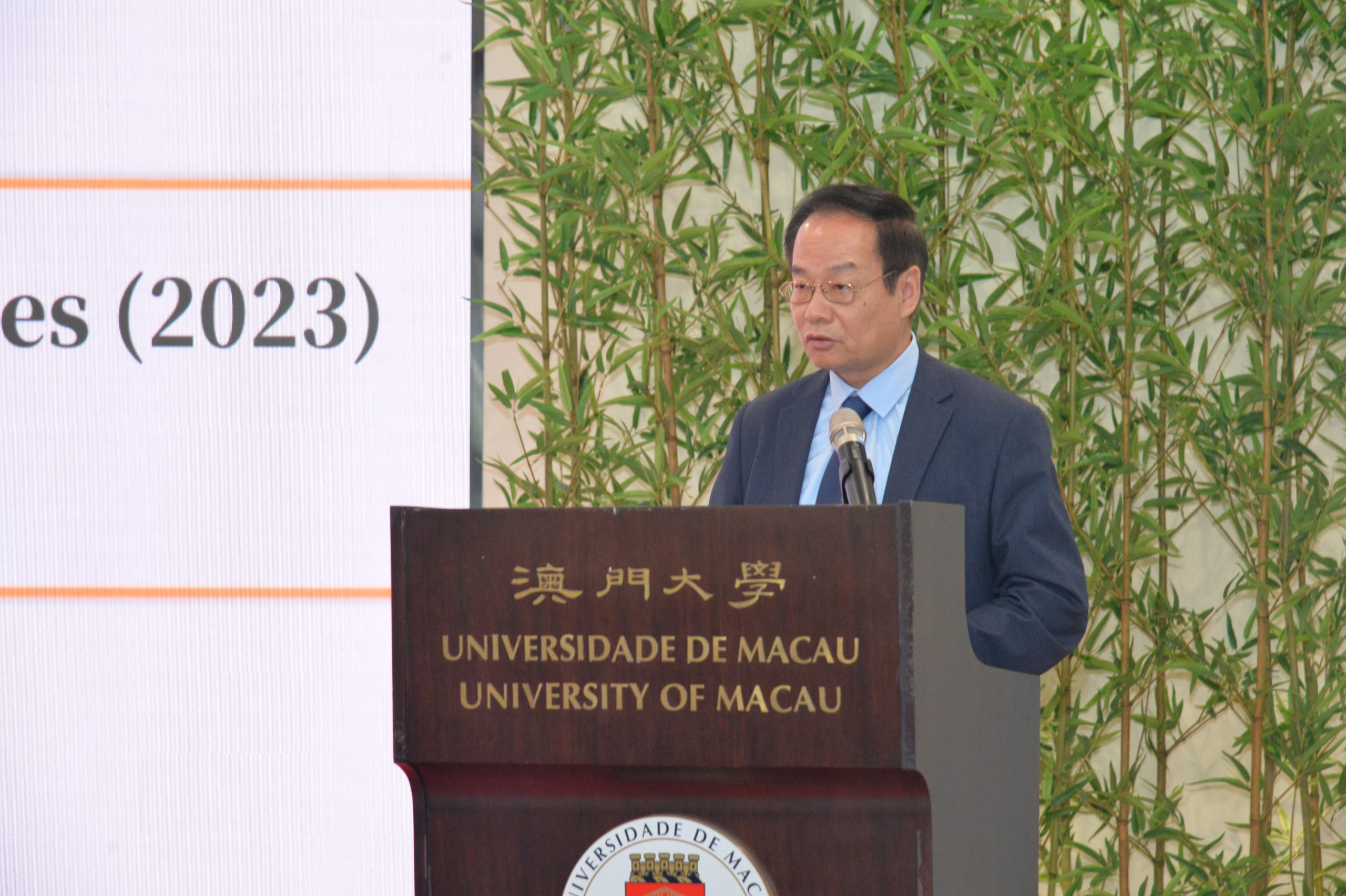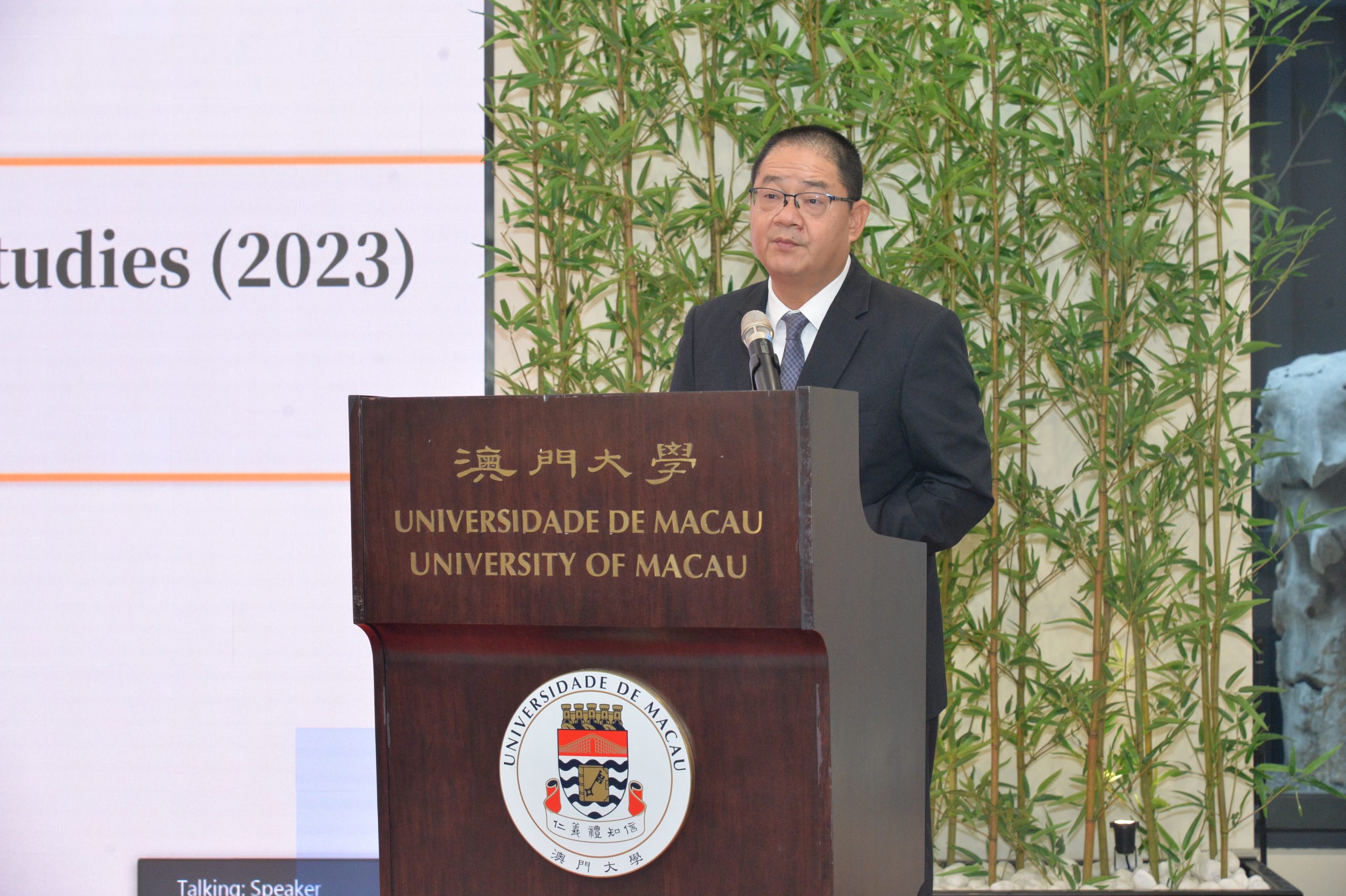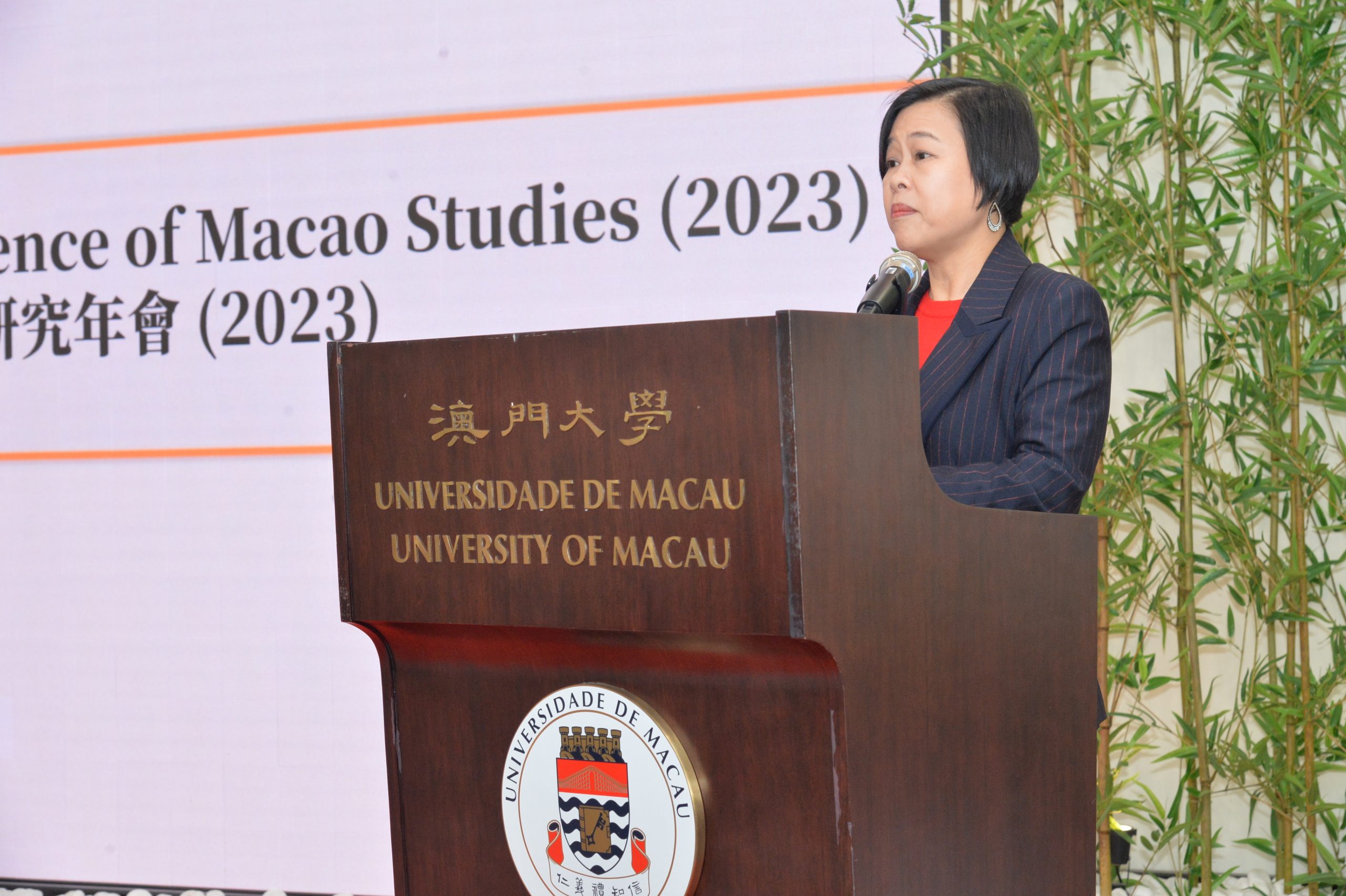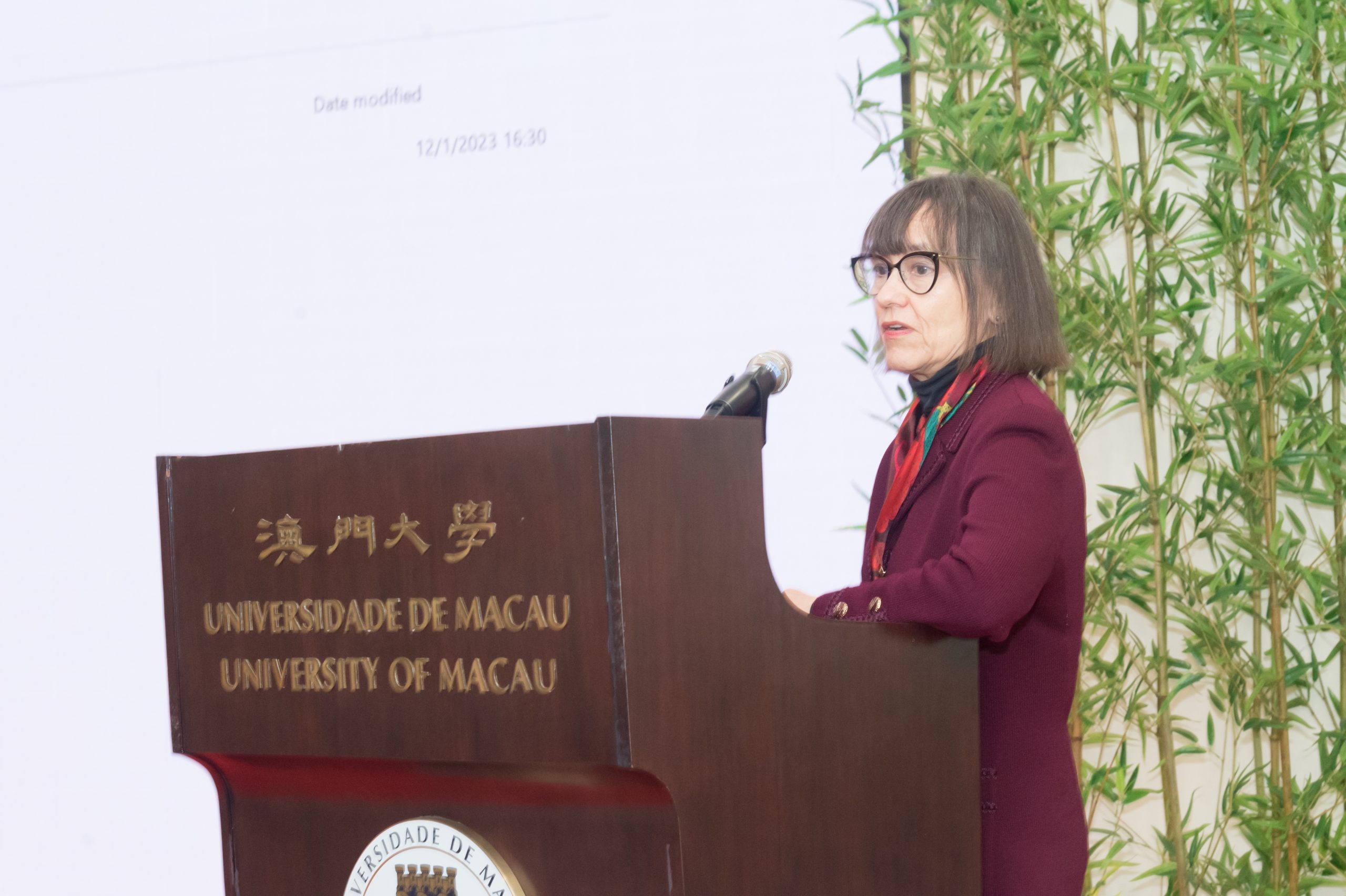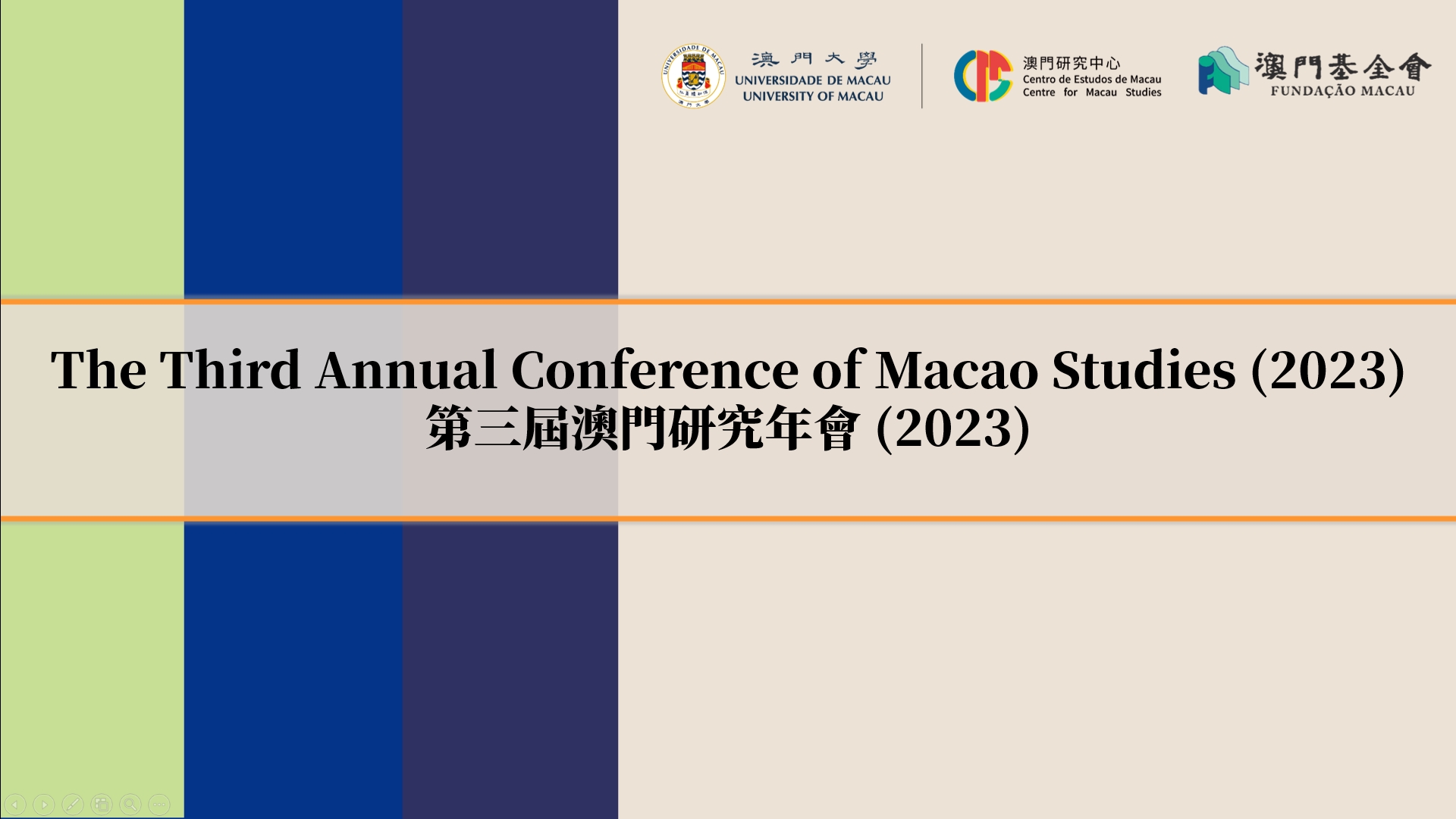
According to Ge Wei, vice rector of UM, Macao has undergone significant changes at different times in its history, which have shaped its role in geo-economics and geopolitics in the context of Greater China and in the global context. By focusing on geo-economic and geopolitical topics related to Macao in key historical and contemporary events, particularly research on the GBA, this year’s conference served to deepen understanding of Macao’s role in a broader regional and global context.
According to Wu Zhiliang, president of the Administrative Committee of the Macao Foundation, it is necessary to have a clear understanding of the global situation and national development, and to examine Hong Kong and Macao’s advantages in a comprehensive, thorough, systematic, and scientific way. In his view, Macao’s greatest value and advantage lie in its culture, on which the city should fully capitalise. Culture is also the most important value in the city’s role as ‘one centre, one platform, and one base’ in the GBA. As the core element in strengthening the national identity of the Chinese nation and building a community with a shared future for mankind, culture deserves to be valued, studied, and promoted. He added that culture should become a regular topic of discussion at the Annual Conference of Macao Studies.
Agnes Lam, director of CMS, said that the Annual Conference of Macao Studies has maintained the same goal since its inaugural edition in 2019, which is to establish a platform for mutual dialogue and cooperation in Macao studies, and to provide scholars from all over the world who possess an interest in Macao Studies with an opportunity to engage in exchanges. Looking ahead, she hopes that the Annual Conference of Macao Studies will continue to bring together competent scholars, and CMS will remain rooted in Macao, keep conducting sociological research and contributing to the development of Macao.

